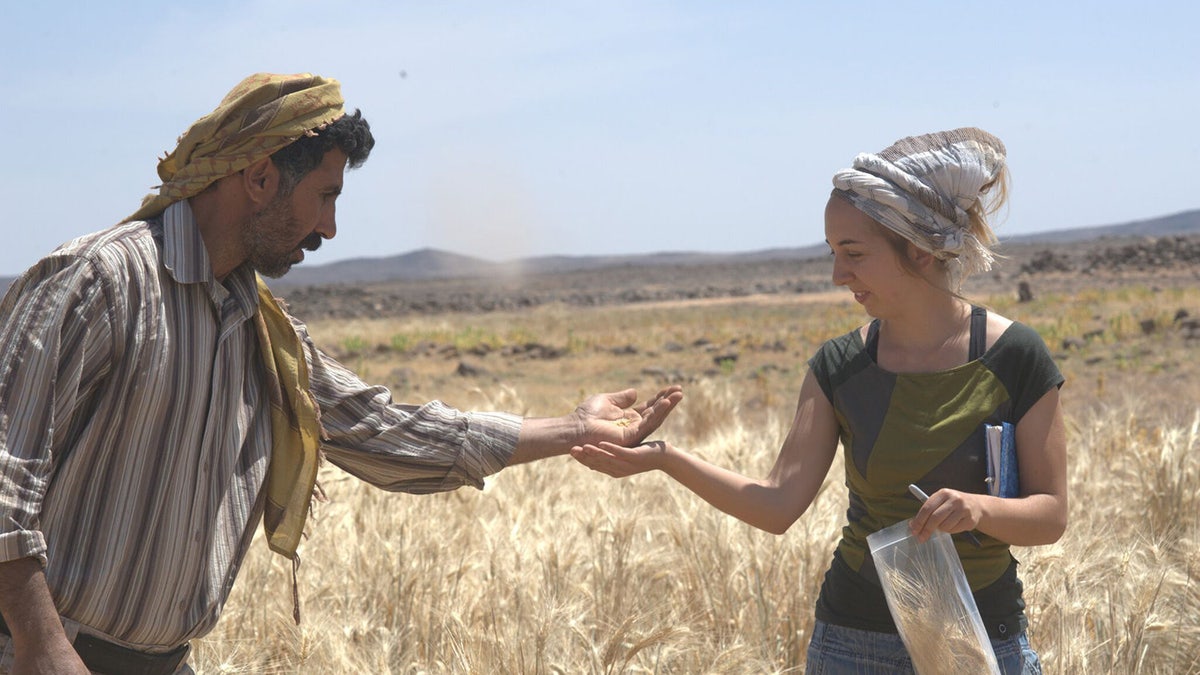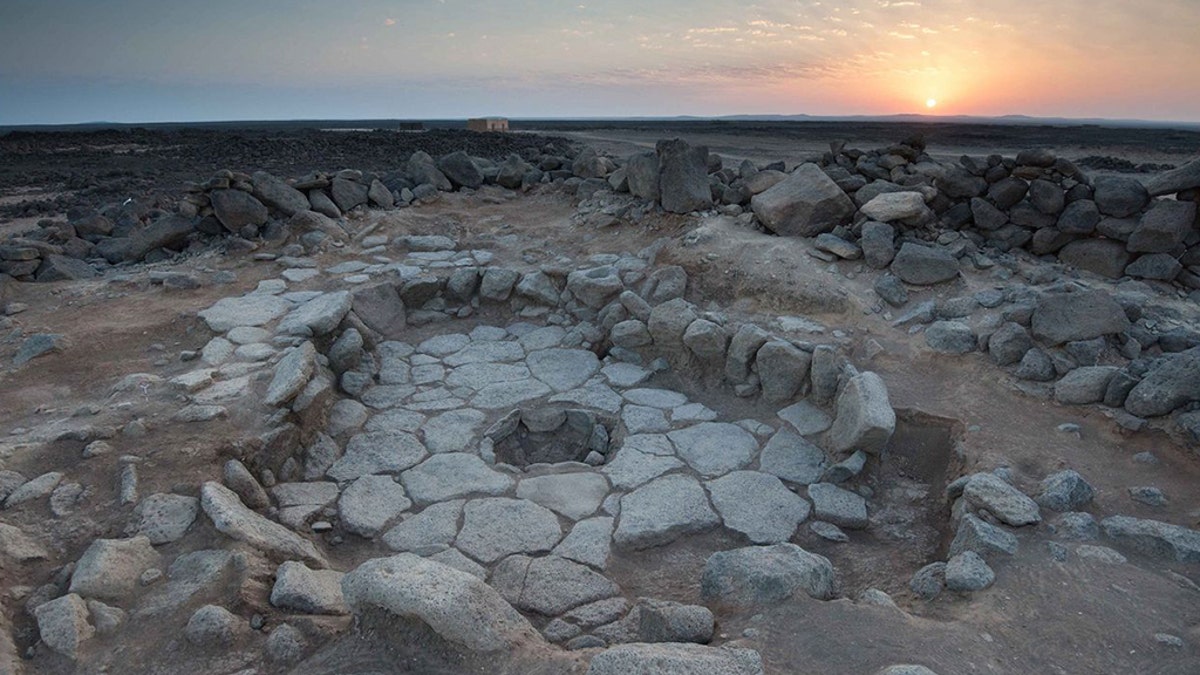
British scientists analysing charred samples from Jordan discovered that flatbread was being made 14,400 years ago. (SWNS)
Neolithic hunter/gatherer tribes were baking bread 4,000 years before they started farming, archaeologists have revealed.
British scientists analyzing charred samples from Jordan discovered that flatbread was being made 14,400 years ago.
It appears early humans may have decided to start cultivating grains in the Neolithic period because the process of using wild plants was "extremely time-consuming."
WOMAN STEALS ARTWORK OFF RESTAURANT WALL, RETURNS IT WHEN FACEBOOK TRACKS HER DOWN
The discovery was made in the Black Desert in northeastern Jordan, from the site known as Shubayqa 1.
A team of researchers from the University of Copenhagen, University College London and University of Cambridge gathered 24 charred food remains, which were analyzed with electronic microscopy at University College London.
The results, published Monday in the Proceedings of the National Academy of Sciences, provide the earliest evidence of the production of bread — which was made from barley, einkorn and oat that was ground, sieved and kneaded before baking.
"Bread involves labor-intensive processing which includes dehusking, grinding of cereals and kneading and baking," explained Professor Dorian Fuller from the UCL Institute of Archaeology.
"That it was produced before farming methods suggests it was seen as special, and the desire to make more of this special food probably contributed to the decision to begin to cultivate cereals."
INCREDIBLE 5,500-YEAR-OLD TOMB DISCOVERY IS 'FIND OF A LIFETIME'
Lead author Amaia Arranz Otaegui from the University of Copenhagen added that the charred remains, found in fireplaces from Shubayqa 1, are "exceptional" discoveries.

The charred flatbread remains were found in stone fireplaces in Jordan. (SWNS)
"It has given us the chance to characterise 14,000-year-old food practices. The remains are very similar to unleavened flatbreads identified at several Neolithic and Roman sites in Europe and Turkey. So we now know that bread-like products were produced long before the development of farming."
Archaeologist Tobias Richter, who led the excavations, added: "Natufian hunter-gatherers are of particular interest to us because they lived through a transitional period when people became more sedentary and their diet began to change.
"Flint sickle blades as well as ground stone tools found at Natufian sites in the Levant have long led archaeologists to suspect that people had begun to exploit plants in a different and perhaps more effective way.
"But the flatbread found at Shubayqa 1 is the earliest evidence of bread-making recovered so far, and it shows that baking was invented before we had plant cultivation.
MUMMY WEARING GOLD-GILDED FACE MASK DISCOVERED AT ANCIENT EGYPT BURIAL GROUND
"Indeed, it may be that the early and extremely time-consuming production of bread based on wild cereals may have been one of the key driving forces behind the later agricultural revolution where wild cereals were cultivated to provide more convenient sources of food."
A grant recently awarded to the University of Copenhagen team will ensure research into food-making during the transition to the Neolithic will continue.




















